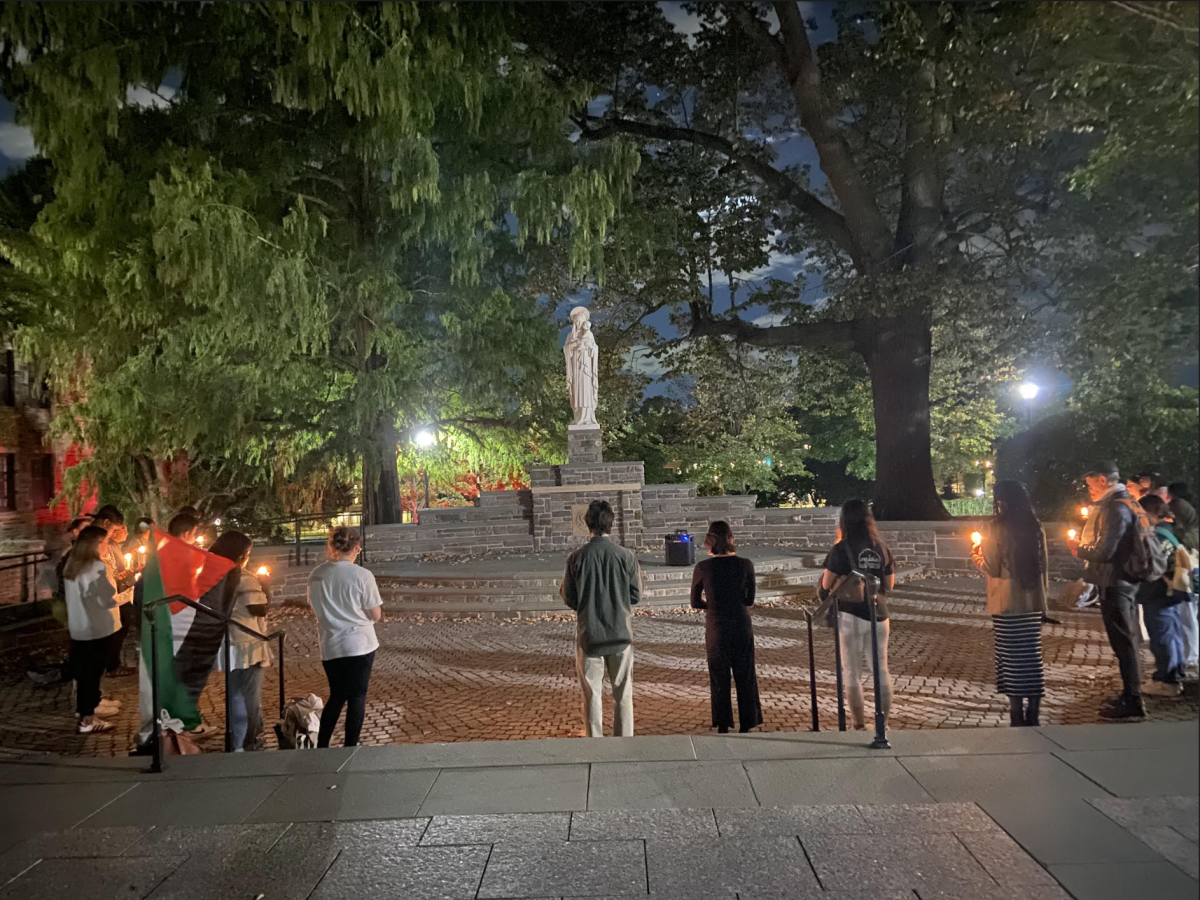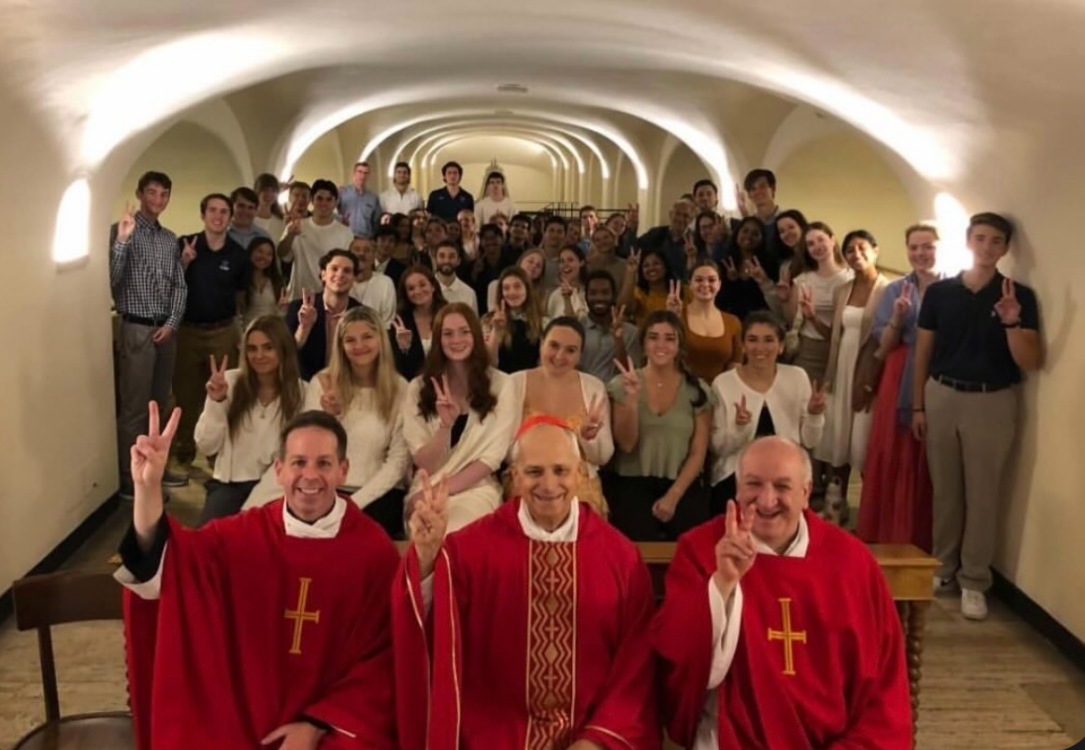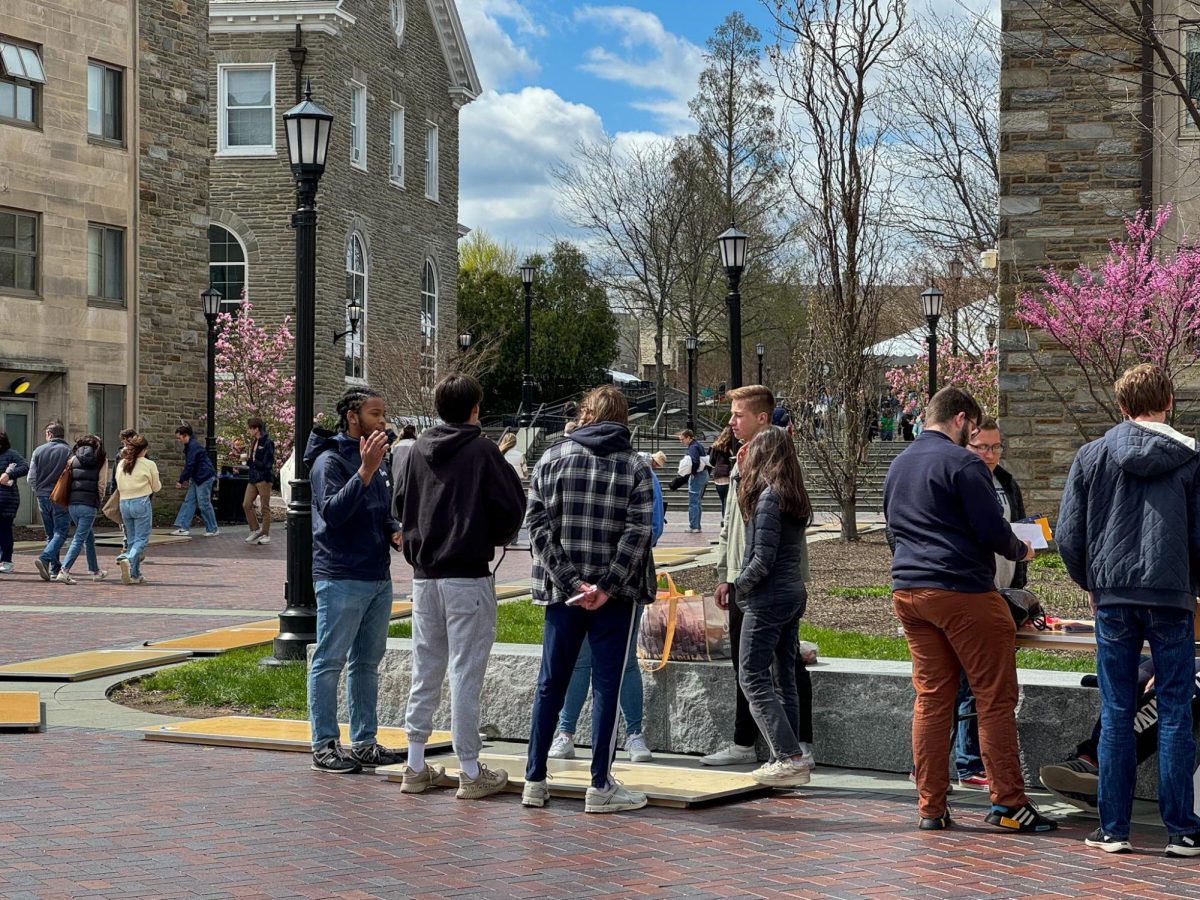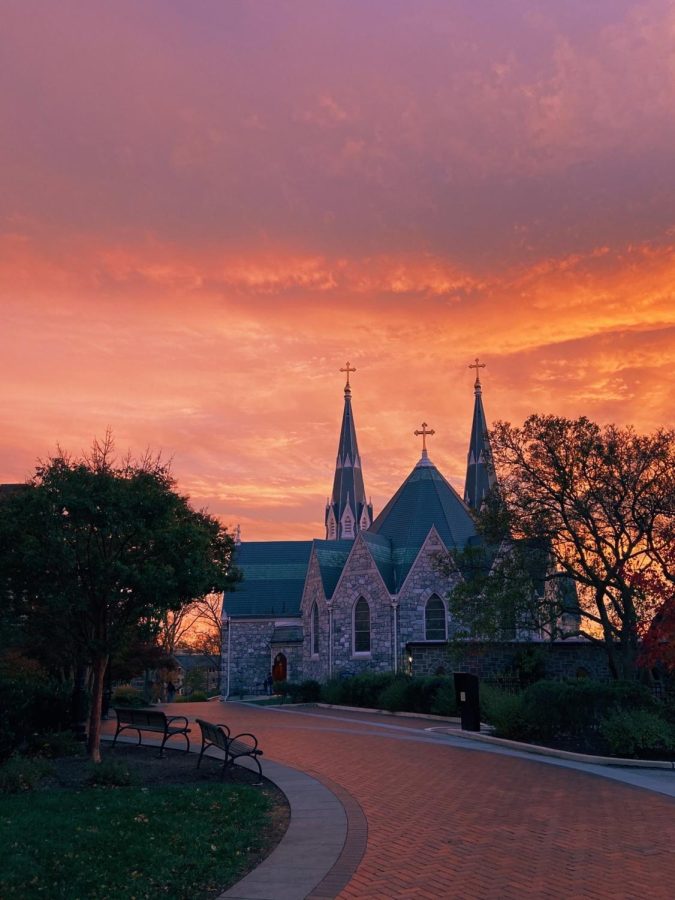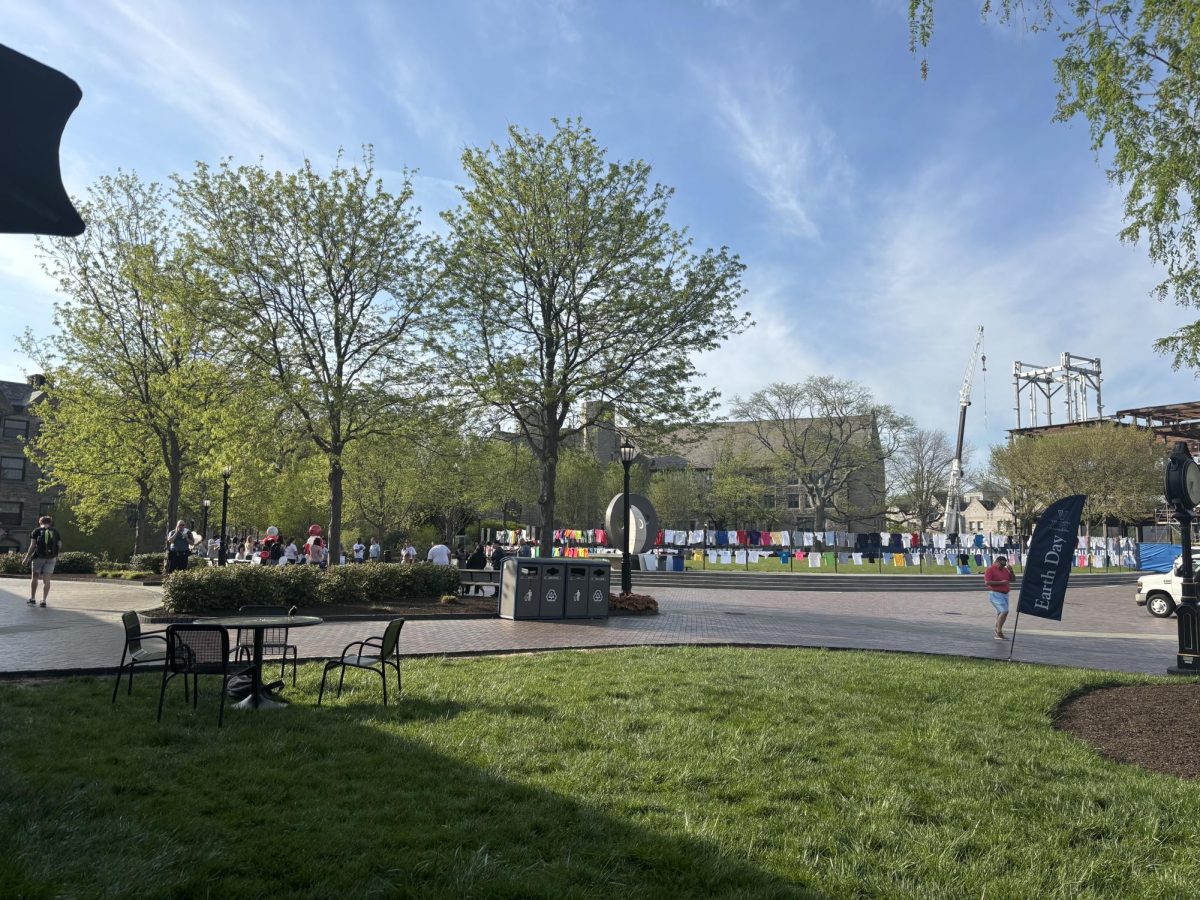On Wednesday, Oct. 9, Villanova members of Students for Justice in Palestine (SJP) hosted a night march and vigil to commemorate the Palestinian people.
SJP is a national organization with chapters across universities throughout America. Hoping to bring more awareness to campus, Villanova student activists founded their chapter in November of 2023.
“To me, the VUSJP is a source of pride and hope because they are putting what they are learning in the classroom to work in the world,” Dr. Hibba Abugideiri, Associate Professor of History said. “More than that, they understand their activism on campus as a defense of human rights and social justice as well as an embodiment of Villanova’s values of Unitas, Veritas, Caritas. They are not waiting until after graduation to ignite change somewhere out there. They are taking the mission seriously and putting it into action here and now.”
“I think that there’s a real issue on campus with apathy,” AK Asalu, a senior Villanova SJP chapter leader said. “It’s not even in terms of social justice. People just don’t care for each other like they should. We are trying to build a culture of care.”
The week of Oct. 7 marked the national organization of SJP’s “Week of Rage.” Chapters across the country organized different events to raise awareness among their respective campuses. At Villanova, the Week of Rage activities began on Monday, Oct. 7 in Falvey Library. Student leaders conducted a study area throughout the first floor to discuss education in the Middle East.
“We took up space in the library, we put up flags everywhere, and we just basically said that the children of Gaza and the children of the West Bank aren’t able to go to school right now,” Asalu said. “There are over 16,000 children that are dead, and there are a lot more that are missing. The children that are alive and accounted for, they have to move basically at the drop of a hat. So, because of that, there’s a loss of education.”
On Tuesday, Oct. 8, the group held a pop-up rally in front of Sheehan Hall on 1842 Day. The week’s events concluded at Wednesday’s night march and vigil.
“We want every student on campus to know exactly who we are and what we are doing,” Asalu said.
“I think a lot of Villanovans are uneducated or apathetic to the issue,” another Villanova SJP chapter leader said. “This is just a reminder that we are still here, and we’re still fighting to free Palestine. [Our goal for the night march and vigil is] continuing to educate people who want to be educated and who should be educated.”
The march was attended by undergraduates, law students, faculty and staff. It began at the Charles Widger School of Law. The group processed through Main Campus, stopping at the Quad, moving through the Commons and ending at the Grotto across from the Rowen Campus Green.
Throughout the march, student activists recited chants, held banners and waved flags, gaining attention of student passersby.
The march was followed by a vigil to commemorate all the lives lost. While the march was powerful and energetic, the vigil was somber and earnest.
“Palestine will be free, Palestine will be free, we will not avert our eyes, Palestine will be free,” the group sang, as candles were distributed and lit.
There was a four-minute period of silence to honor the 40,000 people who have died since October 7, 2023.
Students, faculty and staff bowed their heads, paying personal homage to those they mourn and remember.
After four minutes, Luke Ohr, a Senior, read the poem “If I Must Die,” written by Palestinian poet Refaat Alaree in 2011. The author had written about his certainty that he would die because of the Israel-Palestine war. He died in December of 2023.
“[Refaat Alareer] saying these words, and then he’s killed in the exact way that he is writing about,” Ohr said. “As tragic as it makes it, it also makes it all that more powerful because you realize this isn’t some fiction, this isn’t something that comes from this man’s imagination. This was something that was actively happening, something that he had an inkling was going to happen to him, and something that did unfortunately happen to him.”
The vigil continued with a Dua, an Islamic prayer of invocation, dedicated to the people of Palestine and Lebanon.
The ceremony concluded as the group blew out their candles and dispersed.
“There’s a humanitarian crisis, and I think people start to become desensitized to it being so far away, if you don’t have that cultural connection,” a graduate attendee of the march and vigil said. “So, I think it’s important just to keep [in] mind and in our hearts those who have died and are still suffering in this humanitarian crisis.”

